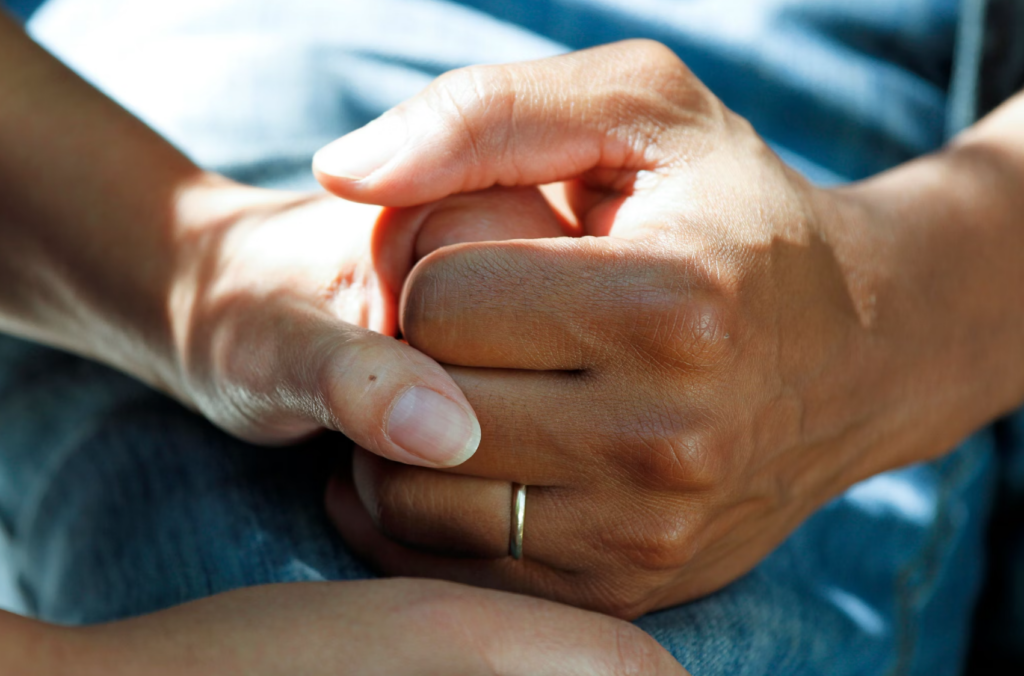The sage doctor who stood at the bedside as I held my dying grandmother said, “We seem to die one organ at a time.” I, however, have come to believe that we are too focused on the failing of the organs to rightly perceive the dying of the person.
Death comes in many different ways, in many different packages. Sometimes it arrives wrapped thoughtlessly in advanced dementia, other times the package is stained red with the blood of exsanguination. Usually, these packages are wrapped in a fashion that, for the careful observer, indicates the content. On occasion, the package arrives and is not recognized even by the most astute among us.
How can we learn to recognize death in the face of the myriad of medical disorders that may deliver it? How can we see the forest despite the distraction of the trees?
Let me tell you the story of Bonnie Mitchum, a patient of mine whose death arrived packaged only in a few broken bones.
“Dr. Murphy… Mrs. Mitchum, the 88 year-old mother of the trauma patient in bed 46 is being transferred in from Carltonville Hospital. She has 3 broken ribs, a fractured hand, and a broken foot. She will be here in 5 minutes, and I’m going to put her in bed 45 to be beside her daughter and so that the family can all be close together.”
“Good idea”, I responded to Kylie, the ER nurse supervisor for the evening.
“She doesn’t sound too bad off,” I thought silently. I was already mentally comparing Mrs. Mitchum to her daughter who was in bed 46– who did seem ‘bad off.’
They were both victims of a motor vehicle crash. The daughter had two open fractures in her right leg and had arrived with jagged bones sticking out of her thigh and calf; with a cold blue pulseless foot. She was about to go up the operating room for Emergency surgery when her mother arrived. I had wanted to give the daughter an update on her mother before she went up to the OR, so I went immediately in to see Mrs. Mitchum as soon as she was placed in her room.
I pulled back the trauma room curtain and stepped inside, pausing at the entryway. I was immediately puzzled, a look quickly picked up on by the nurse.
“What did the doctor at Carltonville give her for pain?” I asked, because Mrs. Mitchum was sitting up in bed, looking very peaceful with a faint drowsy smile on her countenance. She appeared to be completely comfortable, in stark contrast to every other trauma patient who I had ever cared for in ER with broken bones or other injuries who was actually conscious on arrival.
“Nothing.” He responded with eyebrows raised high, likewise in surprise.
“Nothing?” I asked to be sure, while rifling through her transfer paper for proof this was the case.
“Nothing.” He responded again.
He was right. According to the hospital who saw her first, the doctor wrote that the patient states she had very little pain and “didn’t want any medication.” Still puzzled as to how she could be so comfortable despite her injuries, I put down the papers and moved toward her bedside for an official evaluation.
As I walked toward her bed, her facial features came into sharper focus. Immediately, I noticed two things which I found to be slightly disturbing:
1- Her eyes were gazing upward in what I sometimes call “the heavenly stare” (I consider it a near death sign when people appear to be looking beyond the room and not focusing on objects or people in the natural environment.)
2- Her lips were “poofing”—a very non-medical term for a gentle billowing of the lips when exhaling. This usually indicates to me: very relaxed facial muscles, usually seen in sleep states or impending respiratory failure. Given her rib fractures, respiratory failure was my first thought. I also knew that rib fractures in the very old could be the ‘kiss of death’.
Suddenly, I knew instinctively that Mrs. Mitchum was dying. In her face, I could see both the forest and the trees, the package and the message it contained. Mrs. Mitchum had, by most medical understanding, just a few moderate injuries, a few broken bones, but somehow I knew this would prove to be ‘too much’ for her.
I felt almost guilty having come to this conclusion without actually talking with her or closely examining her, so I proceeded with my usual.
“Mrs. Mitchum?” I used my most gentle voice.
To my surprise, she turned her gaze to my face and focused on my eyes. She was very lucid.
Mrs. Mitchum , are you in any pain?
“No, not really.” She replied very clearly.
I furrowed my brow, “These broken bones aren’t hurting you?” I touched her wrapped and broken left hand. “Do you want something for pain?”
“No, not right now,” she responded.
How could this be so?
Find out what happens next by going here.

